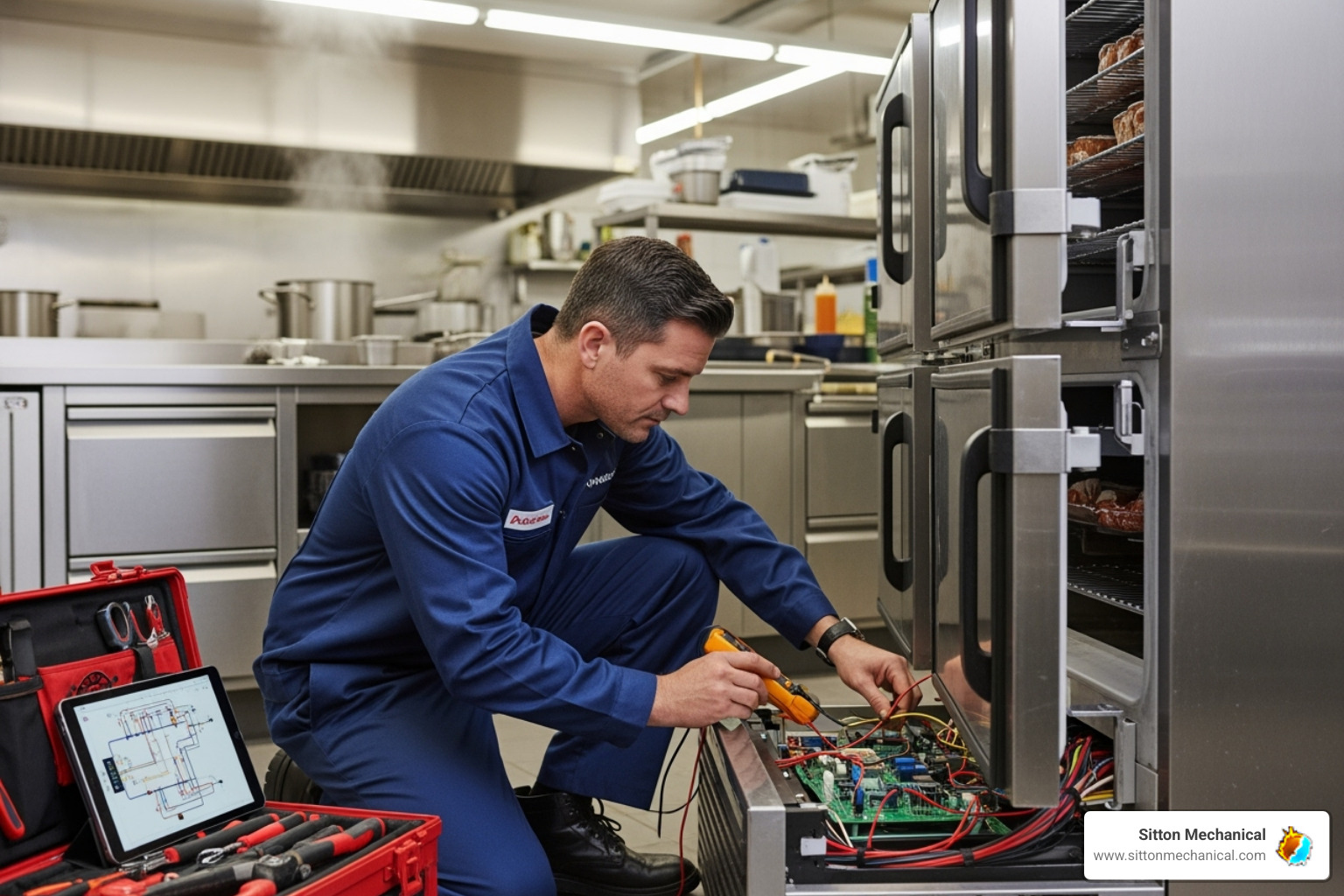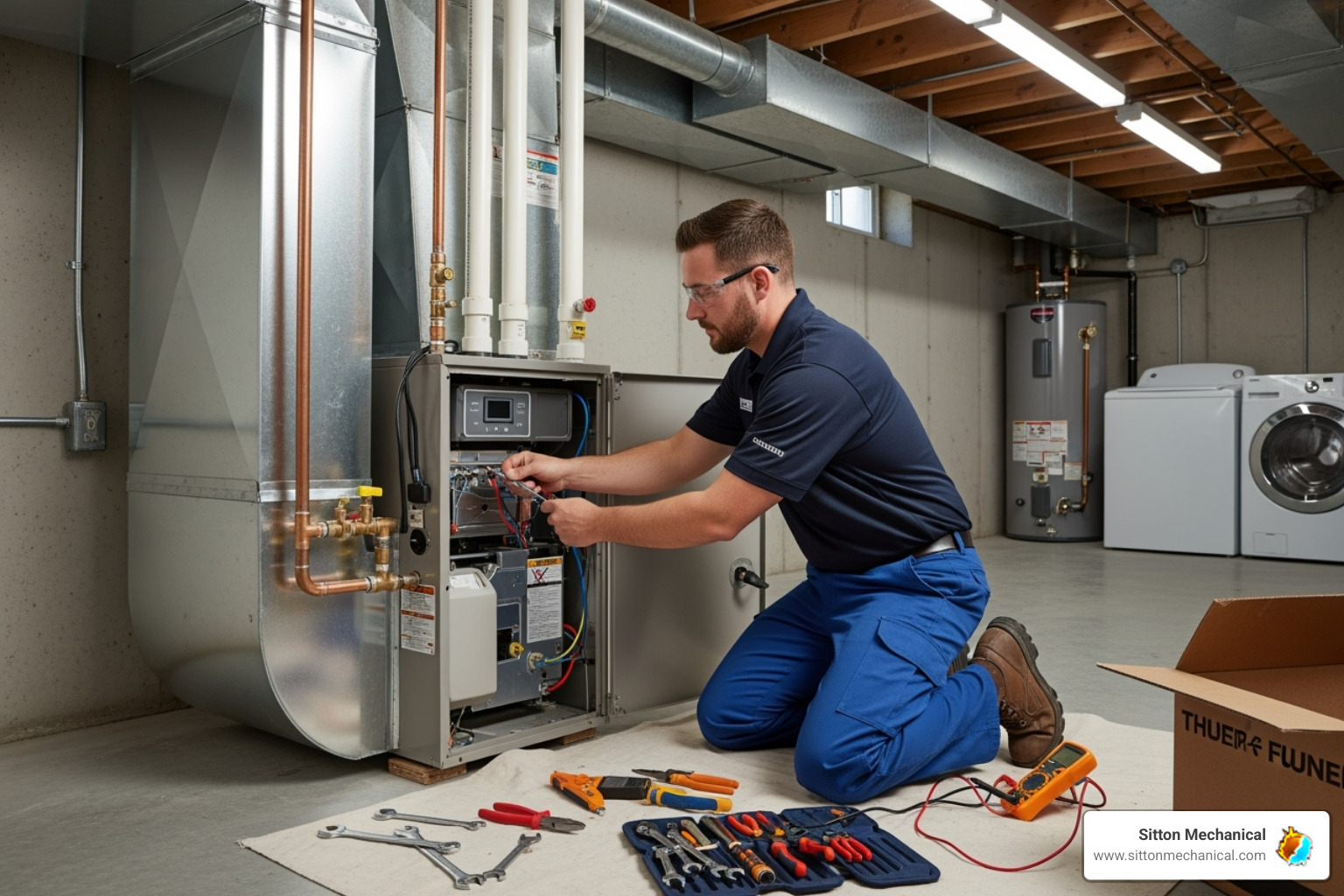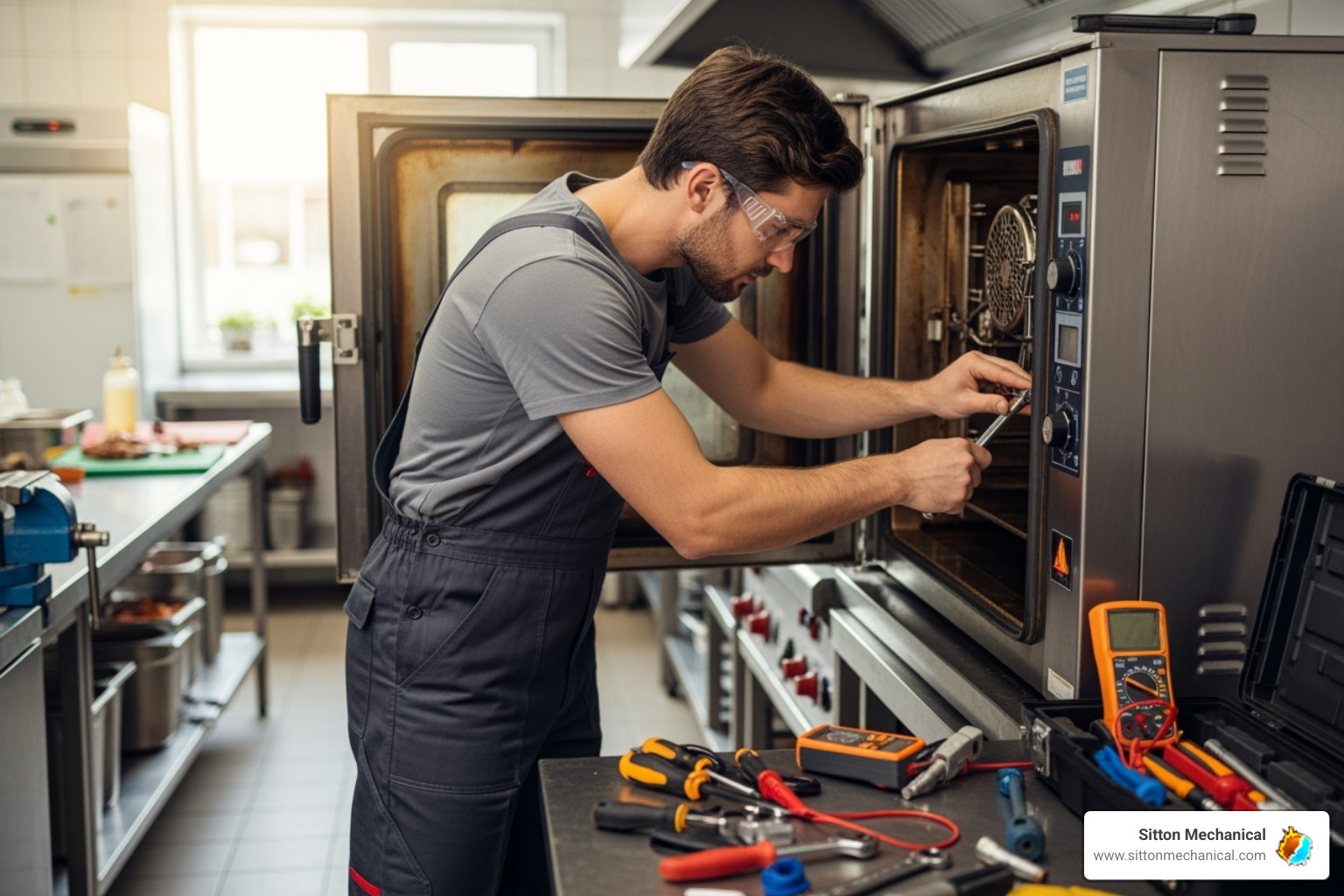Summer in Perkins brings high temperatures, and that means your air conditioning system gets a workout. When your AC stops cooling the way it should, the problem can often be traced back to the compressor. This component works hard behind the scenes to keep cool air flowing through your home. If something goes wrong with it, your comfort takes a hit fast.
Ignoring early signs of trouble can leave you stuck in a hot house when you need cool air the most. Catching compressor issues early can help you avoid full system failure, high repair costs, and extended downtime. Knowing what goes wrong with an AC compressor and what signs to watch for is the first step to staying ahead of bigger problems.
Understanding Your AC Compressor
The AC compressor is a central part of how your cooling system operates. Its job is to pressurize and circulate refrigerant through the AC system. The refrigerant picks up heat from inside your home and carries it outdoors to release it, allowing cool air to come back in. The compressor is what makes this loop work. Without it, refrigerant would not move, and your system would not cool anything at all.
In Perkins homes, air conditioners work hard during the summer, so the compressor has to run a lot more often. This added pressure makes it more likely to face wear and tear, especially if the unit is older or has not had regular maintenance. When the compressor starts to go bad, cooling becomes inconsistent, and the system may even fail to turn on.
For example, a homeowner in Perkins noticed that their system started blowing warm air even when it was set to a low temperature. After a technician inspected the unit, they found that the compressor was overheating and shutting down before completing a full cycle. That shows how critical the compressor is not just to comfort, but to keeping the entire system running properly.
Common AC Compressor Issues
There are several problems that can affect the performance of your AC compressor. While some may be related to normal aging, others are the result of electrical or mechanical stress:
- Electrical Issues: Faulty wiring or damaged capacitors can cause the compressor to stop working or keep it from turning on altogether.
- Refrigerant Leaks: If refrigerant levels drop due to a leak, the compressor has to work harder to cool your home, which can lead to overheating or breakdown.
- Overheating: Restricted airflow, dirty coils, or poor maintenance can all cause the compressor to overheat, shortening its lifespan.
- Mechanical Wear and Tear: Moving parts like valves and pistons wear down with frequent use, which can cause internal damage.
- Dirty and Blocked Coils: When the outdoor coils are covered with dirt, the system struggles to release heat, putting more strain on the compressor.
Each of these issues affects your system differently, but any of them can result in reduced cooling or even a complete loss of operation. Addressing these problems early helps keep your system running and your home cool.
Signs Your AC Compressor Needs Repair
Knowing what to listen for and how your system behaves can make all the difference in catching compressor trouble early. A failing compressor does not always shut down immediately. Instead, signs can build up over time before the unit stops working completely. Homeowners in Perkins often report similar issues before their AC stops cooling their home.
Here are the most common warning signs:
- Unusual Noises: If you hear rattling, clicking, or grinding noises when the AC starts, the compressor may have internal damage.
- Reduced Cooling Efficiency: When the system runs but never quite cools the space, the compressor might not be maintaining proper pressure.
- Frequent Tripping of Circuit Breakers: Compressors that draw too much power when starting up can cause breakers to trip, signaling an electrical or mechanical issue.
- Increased Energy Bills: A failing compressor works overtime to try to cool the home, using more electricity than normal.
- Indoor Unit Blowing Warm Air: If only warm air comes through, even when the thermostat is set low, it could mean the compressor is not circulating refrigerant properly.
Noticing one sign might not mean a major problem yet, but if you are seeing more than one, it is probably time for a full inspection. Compressors are expensive to replace, so catching these clues early can prevent further damage to your AC system.
Preventative Maintenance Tips
The best way to protect your compressor and avoid unexpected repairs is through regular upkeep. Keeping your system clean and well-maintained helps reduce the wear it takes during peak cooling months in Perkins. Prevention does not need to be complicated, but it does need to be consistent.
Here are some straightforward steps that can go a long way:
- Regularly Change Air Filters: Dirty filters block airflow, making the system work harder and leading to compressor strain.
- Schedule Routine Professional Inspections: A trained technician can check the compressor’s condition and spot problems before they grow.
- Keep Outdoor Unit Clean and Clear: Clear away leaves, dirt, and debris so your condenser has proper airflow and ventilation.
- Monitor Refrigerant Levels: Low refrigerant can overload your compressor. Only a technician can check and refill refrigerant levels correctly.
- Address Issues Promptly with Professional Help: Small signs of trouble should never be ignored. A quick fix can often prevent a much larger repair.
Taking these steps not only protects your AC compressor but helps your entire HVAC system run better over time. In Perkins, where high summer temperatures mean long run times, keeping the system in shape avoids breakdowns during the hottest days.
Making Your AC Last Year-Round
Once your AC system is running properly again, the goal is to prevent the same issue from happening in the future. Long-term performance depends on catching wear and tear early. A compressor that overheats once can sometimes recover, but ignoring the signs increases the chance it will not restart next time.
Air conditioning repair in Perkins is more common during the summer because the systems are under more stress. Running your system with a faulty compressor, even if it is still blowing some cool air, adds strain to every component. By keeping a regular maintenance routine and responding to early signs of stress, you protect your investment.
When our technicians check an AC system, they look beyond the immediate issue. Often, they will spot developing problems before they show up on your thermostat. That kind of attention keeps Perkins homes cooler, even during peak summer. Waiting until the system breaks down usually means longer wait times and more expensive repairs, especially mid-season.
If you have noticed odd sounds, weak cooling, or rising energy bills, your compressor could already be struggling. A technician familiar with air conditioning repair in Perkins can diagnose the issue and explain the next steps clearly. Preventing major failure is always better than dealing with a full system outage during a heat wave.
If your AC compressor issues are affecting your comfort in Perkins during hot summer days, consider scheduling professional service from Sitton Mechanical. Our technicians can inspect your system and address any potential problems before they turn into major repairs. Learn more about air conditioning repair in Perkins and safeguard your home's cooling efficiency this season. For a quick estimate or to book a service visit, please contact us today.
Ready to Transform Your Home?














